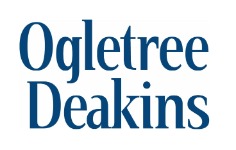The LMRDA and Persuaders
In labor relations jargon, the term “persuader” refers to labor consultants and other third parties that employers can hire to educate their workforces about the realities of bringing a union into the workplace. Since its enactment in 1959, the LMRDA has required employers to disclose any agreement or arrangement with a third party pursuant to which the third party “undertakes activities where an object thereof, directly or indirectly, is to persuade employees” with respect to exercising their rights to organize and bargain collectively. Further, the LMRDA has always contained an “advice exemption” that limits the law’s disclosure obligations. For over 50 years, the DOL interpreted the advice exemption so that advice and recommendations that employers received from labor lawyers and labor consultants regarding responses to union organizing were not reportable as long as the employer was free to accept or reject the advice, and the lawyer or consultant did not directly communicate with the nonsupervisory employees in question.
In the final rule, the DOL abandoned this 50-year interpretation. Effective July 1, 2016, advice that has the direct or indirect purpose of persuading employees is reportable, even if the supposed persuader has no direct contact with employees, and even if the employer is free to accept or reject the persuader’s advice. Consequently, the DOL is requiring employers and their advisors to publicly report a broad spectrum of previously unreported indirect persuader activities that law firms, consultants, and others have provided to managers and supervisors since the days of the Kennedy administration. This change has opened the door to potential reporting of certain labor-related services that trade associations provide to their employer members.
Implications for Trade Associations
If a trade association retains a third party to help persuade the trade association’s own employees not to unionize, the trade association would be subject to the LMRDA reporting obligations just the same as any other employer would be. In addition, if a trade association plans, orchestrates, or scripts a member’s response to union organizing, the trade association would be a persuader to the same extent as any other labor relations consultant. Things get tricky when trade associations provide newsletters, seminars, and other services that members can use to curtail union organizing. Do those services make the trade association a persuader, and if so, under what circumstances would arrangements between trade associations and their members have to be reported?
Membership
The first question is whether an employer’s membership in a trade association that offers persuader-type services to members is a reportable “agreement or arrangement” for a trade association or for its members. The final rule acknowledges that a membership in a trade association that may provide members with persuader services is an “agreement or arrangement” for purposes of the LMRDA. However, in the final rule, the DOL adopted the position that a trade association is not required to file a report solely by reason of a membership agreement with its members. On this point, the final rule states unequivocally that “reporting is triggered only where the association engages in persuader activities, not by virtue of the membership agreement itself.”
Newsletters
On occasion, newsletters that trade associations distribute to employer members may deal with collective bargaining or union organizing concerns of members. In the final rule, the DOL makes clear that merely distributing a newsletter addressed to employer members will not trigger LMRDA reporting obligations for a trade association. However, in a footnote, the DOL points out that, where a trade association publishes newsletters for employees of employer members, the inclusion of any material with an object to persuade employees would trigger reporting by the trade association.
Union Avoidance Seminars
The final rule goes into considerable detail on whether conducting union avoidance seminars is reportable. The DOL recognizes that not all union avoidance seminars will be reportable. The general rule for labor relations consultants and law firms is that they must report agreements to provide such seminars for employer representatives if the consultant or lawyer “develops or assists the attending employers in developing anti-union tactics and strategies for use by the employer, the employers’ supervisor, or other representatives.” On the other hand, “a seminar in which the consultant does not develop or assist the attending employers in developing anti-union tactics or strategies for use by the employers’ supervisors or representatives” would not be reportable.
These distinctions sound simple enough, but exactly at what point does a presentation on union avoidance “assist” an attending employer to develop tactics and strategies, and when does it not assist them? Does a reporting obligation turn on whether the presenter makes recommendations to the attendees on specific content choices or the sequence or manner in which the content should be communicated to employees? Or is the linchpin the tailoring of the message or advice for a particular employer based on that employer’s peculiar workforce? Unfortunately, the final rule does not tell us.
In the absence of more definitive guidance, the prudent approach may be to treat seminars that touch on union-avoidance issues as reportable by the presenting firm or consultant unless the content is limited to one or more of the following topics, which the final rule has indicated are examples of nonreportable advice:
→ advising employers about legal vulnerabilities and how to minimize those vulnerabilities;
→ identifying unsettled areas of labor law;
→ counseling supervisors on what they may lawfully say to employees;
→ reviewing campaign materials for legal sufficiency; and
→ offering guidance on employer personnel policies and best practices.
While determining when and under what circumstances the reporting obligation of a trade association may exist can be tricky at best, that is not as much of a problem for employer members attending a seminar. Under the final rule, employers whose representatives attend an otherwise reportable union avoidance seminar generally do not have a reporting obligation. While that obligation would be triggered for the consultant or law firm doing the alleged “persuading,” the final rule eliminates duplicative reporting by employers that attend multiemployer union avoidance seminars. Citing to the newly revised 29 C.F.R. §406.2, the final rule also clarifies that the law firm’s or consultant’s report would be due within 30 days after the conclusion of the seminar, not within 30 days of registration for the event.
Where a trade association hosts a union avoidance seminar for employer members, the trade association’s obligation to report depends upon whether it actively participates in the seminar. Merely hosting or sponsoring a seminar on union avoidance does not, without more, impose a reporting obligation on a trade association. The final rule states that “trade associations are required to report only if they organize and conduct the seminars themselves, rather than subcontract their presentation to a law firm or other consultant.” Where one or more employees of a trade association will serve as a presenter during an otherwise reportable union avoidance seminar, however, the trade association will bear the LMRDA reporting obligation. The report would have to identify the employers that attend the seminar. Those who register but do not attend would not be reportable.
Off-the-Shelf Materials
The final rule recognizes that the provision of “off-the-shelf” materials regarding union avoidance can, in certain circumstances, constitute indirect persuader activity. An employer’s selection and purchase of those materials does not, without more, trigger reporting requirements for the employer or for the consultant. Where a consultant plays an active role in selecting the materials for a client’s employees based on the specific circumstances faced by the employer, the activity is reportable by the consultant and the employer. However, under the final rule, trade associations are exempt from this reporting requirement, even when they select the off-the-shelf materials for members to use for their employees.
Takeaways
The final rule appears to leave trade associations with only a relatively narrow range of situations in which member services will have to be reported as persuader activity. Nonetheless, trade associations that help members deal with labor relations issues need to understand how the final rule applies to these activities. Trade associations should approach union avoidance seminars with particular care, even if the reporting obligation technically would belong to a consultant conducting the actual presentation and not to the trade association. Some trade associations may opt to narrow the scope of seminars so as to avoid reporting obligations altogether, while others may decide to accept the reporting obligations as a manageable consequence of the services they provide to members.
Where a trade association offers members a seminar on union avoidance or collective bargaining that would trigger reporting obligations (for either the presenter or the trade association), it is important to bear in mind that the resulting visibility may be a concern for some members. For a variety of different reasons, some members may be sensitive to being named on a DOL list of employers attending a particular union avoidance seminar.
Therefore, where possible, if a trade association has determined (perhaps after consulting with legal counsel) that a seminar is reportable, it may want to prospectively notify potential attendees regarding the need to report their attendance. Additionally, it is important that trade associations treat each seminar on a case-by-case basis in light of the manner in which the DOL may interpret its new regulations over time. It is possible that the DOL could read more or less into reporting obligations than the plain text of the regulations suggests. Therefore, prudent trade associations will carefully monitor future DOL actions so that they know what questions to ask counsel about their planned activities.
Finally, trade associations should keep in mind that engaging in reportable persuader activity may entail an additional, somewhat broader reporting obligation. In addition to reporting specific persuader agreements or arrangements, persuaders must file “LM-21” reports after the end of the relevant fiscal year. The LM-21 captures the total receipts and disbursements that a persuader performs for all its clients during that year related to “labor relations advice or services.” While this term is not defined, its breadth suggests it would cover a wider range of labor relations services than persuader activities per se.
The specific contours of this reporting obligation were not included in the final rule and will be the subject of additional rulemaking from the DOL. For the time being, the DOL has adopted a special enforcement policy that suspends the relevant LM-21 reporting obligations, pending the follow-on rulemaking. Further, the DOL recently announced in a status report filed in litigation pending in Arkansas that it will not apply the new rules to arrangements entered into prior to July 1, 2016. This latter announcement seems to suggest that trade associations and their clients may be able to “grandfather” existing arrangements or create new ones prior to July 1, 2016, that might limit the reporting required under the new regulations. Trade associations and labor consultants should continue to monitor these developments closely.

















